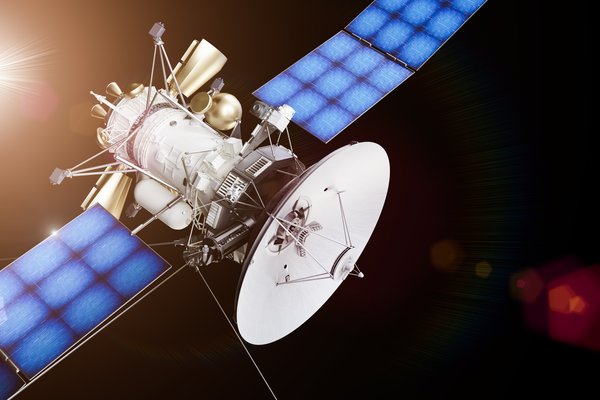Poland to receive data from European satellites
Poland will host infrastructure collecting data transmitted by European Space Agency (ESA) satellites. It is the first structure of its kind in Poland and one of the biggest ESA tenders won by a Polish consortium.
The analysis and storage of data from satellites is currently one of the best paid businesses in the space sector. It is also one of the strategic aims of the recently established Polish Space Agency.
Images transmitted by the satellites over Europe are currently stored in several large processing centres in Italy, Germany and the Netherlands, amongst other places. Soon they will also be sent to Poland. The respository created in Poland will be one of the main centres of its kind in Europe and will, within the framework of the ESA, store all type of optical data from Earth observation satallites.
“The repository we have created will initially gather data from the Landsat, Envisat and Sentinel satellites, and others as well later on. Data of this kind is currently being stored in various centres all over the world, which it make more difficult to search and analyse them. We will collect all this data here and make it accessible to everyone who wants to study it,” says Monika Krzyżanowska, the business development manager of Creotech Instruments, the firm which won the ESA tender. The company is one of the market leaders within the Polish space sector and has already received commissions from the ESA, such as building equipment for the International Space Station.

The data and findings from the satellites are currently used by many sectors – from defence and agriculture to road and sea transport. It is also used by scientists for their studies and predictions.
“The data collected by the Earth observation satellites provide us with the latest information for bushfire and flood warnings, they help us monitor river levels and crops as well as pinpoint smog formations and their density over cities,” explains Monika Krzyżanowska. They also identify subtle changes in the climate caused by desertification and the melting of Artctic ice caps.
The expert points out that creating the respository receiving the satellite data does not mean physically building a new centre, but rather using the existing structure in Poland, which is known for its high quality and has a good reputation across Europe. The modern systems will allow for the data to be accessed in the cloud, although in practice they will be stored in several servers. The infrastructure will be serviced by CloudFerro, a Polish firm which is part of the consortium that won the ESA tender. The third member of the consortium is the German company Brockmann Consult, which specialises in developing information technology solutions for the space sector. The project is valued at more than 8 million zloty and is one of the biggest tenders that the ESA has ever awarded to a Polish consortium.
“The satellites first transmit the data to transceiver stations based, amongst others, on the Norwegian island of Svalbard, the Canary Islands and southern Italy,” says the ESA’s Guenther Landgraf (Head of Ground Segment Infrastructure Engineering Section, Directorate of EO Programmes ESA-ESRIN). “It is then sent to large data processing centres located in several places, including Frascati in Italy, where I work, as well as Amsterdam, Toulouse and Darmstadt, where the European Space Operations Centre is based. Soon they will be joined by the Polish repository,” Landgraf adds.
“We are driven by the idea to build a strong service centre in Poland that processes and shares satellite information to the whole of Central Europe,” Dr. Grzegorz Brone, the CEO of Creotech Instruments said during a press conference.
ALEKSANDRA STANISŁAWSKA
25.01.2016







